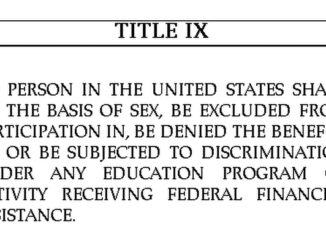
Historically, May and June are the months when young lovers, full of hope, tie the knot.
Have you heard wedding bells? No? A quick review of data shows that 2018 had the lowest rate of marriage since 1900. Marriage rates have dropped by 60% since the 1970s. In 2020, only about 34 amorous souls out of 1000 got married.
Maybe you are hearing alarm bells. Economists and sociologists are warning that our growth rate both economically and procreatively is unsustainable.
There is no lack of reasons for the downward trend in marriage. Men and women now value freedom over commitment, personal growth over mutual respect, immediate gratification over intimacy. Divorced parents, influence peddlers, drug use and abuse, legacy and social media, even climate change have taken the blame.
Months ago, The Wall Street Journal went to the source of this demise. The Journal invited Gen Z college students to offer their feelings on the ancient institution of marriage. A student at Emerson responded, “Paying bills and fighting climate change are bigger priorities than settling down. Polyamory is on the rise and … redefinitions of love are gaining traction.” This student compared marriage for a young man to prison.
A student from Baylor gave all the economic reasons — inflation, mortgage and tax rates — to explain that “supporting more than one person on one income after college graduation has become nearly impossible.” Others are afraid of making their parents’ mistakes, “staying away from something that is life-altering and has the capability to uproot their own lives careers and successes.”
But avoiding these avoids committing to a greater purpose.
These excuses for avoiding marriage are not supported by fact. According to Brad Wilcox, professor of Sociology at UVA, married men and women are statistically wealthier and happier than their single peers. Additionally, their children are more likely to finish college, be better socially adjusted and be more successful in adulthood. This is as true today as it was when the late Sen. Daniel Moynihan wrote the book on fatherless families in 1965.
Suicide rates are higher, incomes are lower and more children live in poverty without wedlock as a bedrock in the pursuit of happiness. The fall of traditional marriage has naturally led to a much lower birth rate and, more concerning, single-parent households. Last year, more than 19 million children in the United States were living in single-parent households.
A law student from Penn State Dickinson Law offered insight that suggests a way for us to turn this trend around. He wrote: “Gen Z’s aversion to matrimony stems from America’s failure to prepare its youth for marriage. Married couples must possess communication skills, fiscal responsibility, vocational competence, moral discipline, self-denial and emotional control. Spending your youth living for yourself hardly fosters these traits.” Wow.
Consider the current controversy involving Harrison Butker and the Benedictine College commencement speech. He praised motherhood as an honorable and fulfilling choice for a woman. He further acknowledged the importance and the benefits of this choice on the children impacted by two-parent families. His passionate advocacy for love and leadership has been called a foul by many of his cohorts.
Butker further described the value of fatherhood to the structure of two-parent families in tone and culture. Some found this an outrageous and socially unacceptable notion, a racial slur. Yet, the Institute for Family Studies reports that” family instability may be the biggest factor” (in criminal behavior) “and it’s not receiving the attention it deserves.”
Butker is not the first in recent months to call out our institutions for not leading us out of temptation and into a more stable, more structured culture. Media outlets are starting to openly question the results of the liberal experiment that has been practiced in our schools and social agencies. Note that diversity, equity and inclusion departments are being canceled here in North Carolina and around the nation.
Virtue is starting to look cool again.
The success of marriage and families must become a priority in our local and national institutions. We have had our war on poverty and on drugs with little success. Concentrating our effort and investment in the leaders of our future is within our grasp. Elect leaders who believe in the virtues of faith, hope and love. Demand fiscal responsibility for subsidizing the needs of young families filled with optimism. Teach your children and grandchildren by example and design what a healthy family life can accomplish. Our law school student told us how to prepare our youth for marriage.
Gen Z is ready for this.
Connie Lovell lives in Pinehurst.



